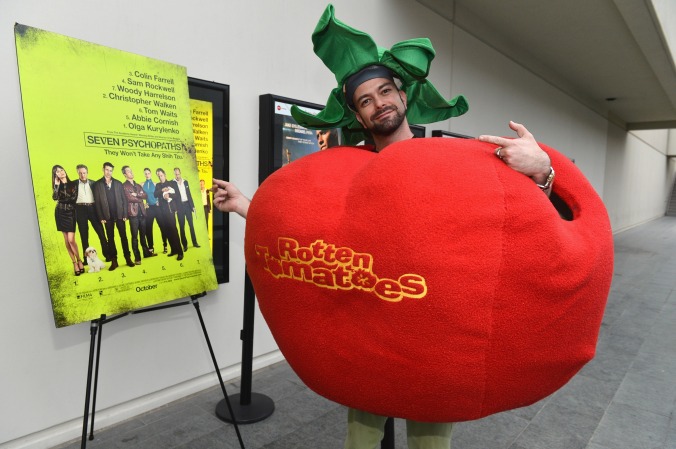- Paste |
- A.V. Club |
- Jezebel |
- Splinter |
- Wolfgang's

When studio executives and film connoisseurs are looking for a reason why ticket sales or the perceived quality of the cinema has declined over recent years, they often direct their gaze squarely at everyone’s favorite review aggregator, Rotten Tomatoes. Countless less-than-convincing arguments have been made that, because the Rotten Tomatoes system reduces the quality of a film to an easy to understand percentage and colorful little icon, moviegoers are willfully handing over their freedom of choice to the seemingly scientific algorithm. Simply put, no one wants to shell out cash for a movie that a website they trust calls “Rotten.”
Just yesterday, acclaimed director Martin Scorsese wrote a guest column for The Hollywood Reporter decrying internet review aggregators saying they “have absolutely nothing to do with real film criticism.” But, as Vox points out in their most recent video, the problem isn’t with the Rotten Tomatoes system of scoring, but with how people interpret those scores as definitive judgements of quality.
The video is concerned primarily with the “Certified Fresh” rating on Rotten Tomatoes, which is reserved for films that have over 80 reviews, with 70% or more of the reviews being positive, and at least five of the reviews coming from top critics. Some of these films, like Alien: Covenant (70%) and Moonlight (98%), can actually be pretty far apart in terms of critical consensus or praise, and yet, they’re both over the threshold to receive the “Certified Fresh” badge. This may not seem like much, especially with a 28% difference in the films’ actual ratings, but that “Certified Fresh” icon is enough to sway a significant number of potential viewers who don’t necessarily have time to understand the nuance behind the scores.
That nuance comes down to the agreement between reviewers. If there is less agreement among critics, the film will get a slightly lower Tomatometer percentage, even if most of the ratings are extremely positive. As Scorsese mentioned in his article, more divisive films like Darren Aronofsky’s Mother! get short shrift in this system simply because they can’t be “easily defined or interpreted or reduced to a two-word description.” Rotten Tomatoes likes it when everyone agrees, which is one of the potentially negative aspects of this system. Film is subjective, people are going to disagree, and that should be okay. By converting personal taste into a binary system of quality and rewarding hive mind agreement, Rotten Tomatoes runs the risk of being everything its detractors say it is. That being said, if people would take a minute to read the actual reviews, we wouldn’t be talking so much about scores and tomato icons in the first place.
 Keep scrolling for more great stories from A.V. Club.
Keep scrolling for more great stories from A.V. Club.